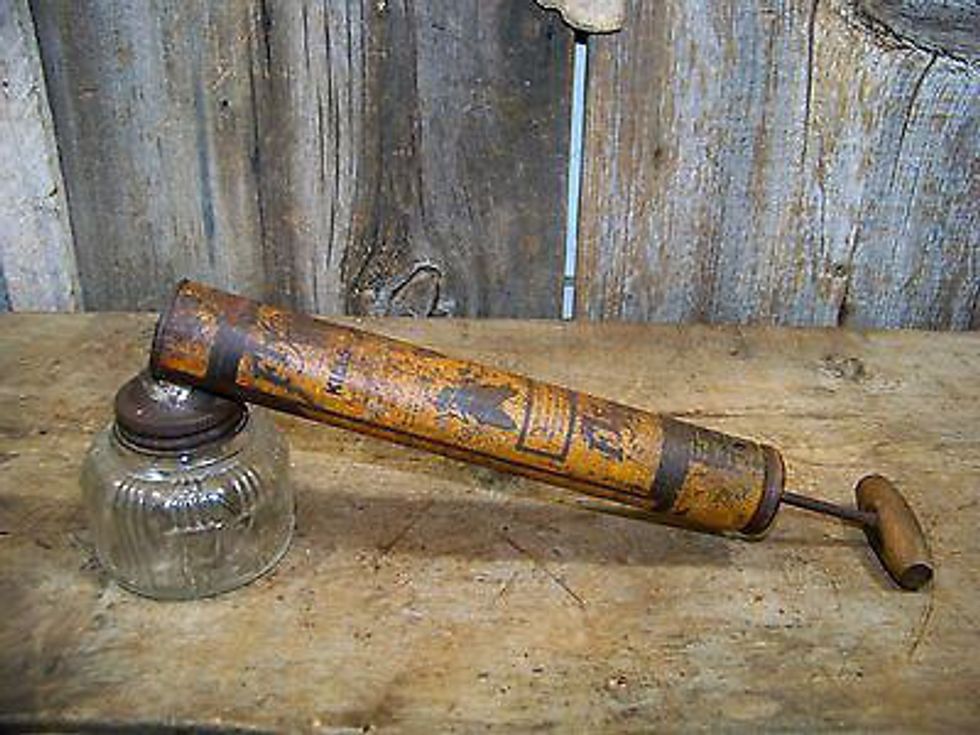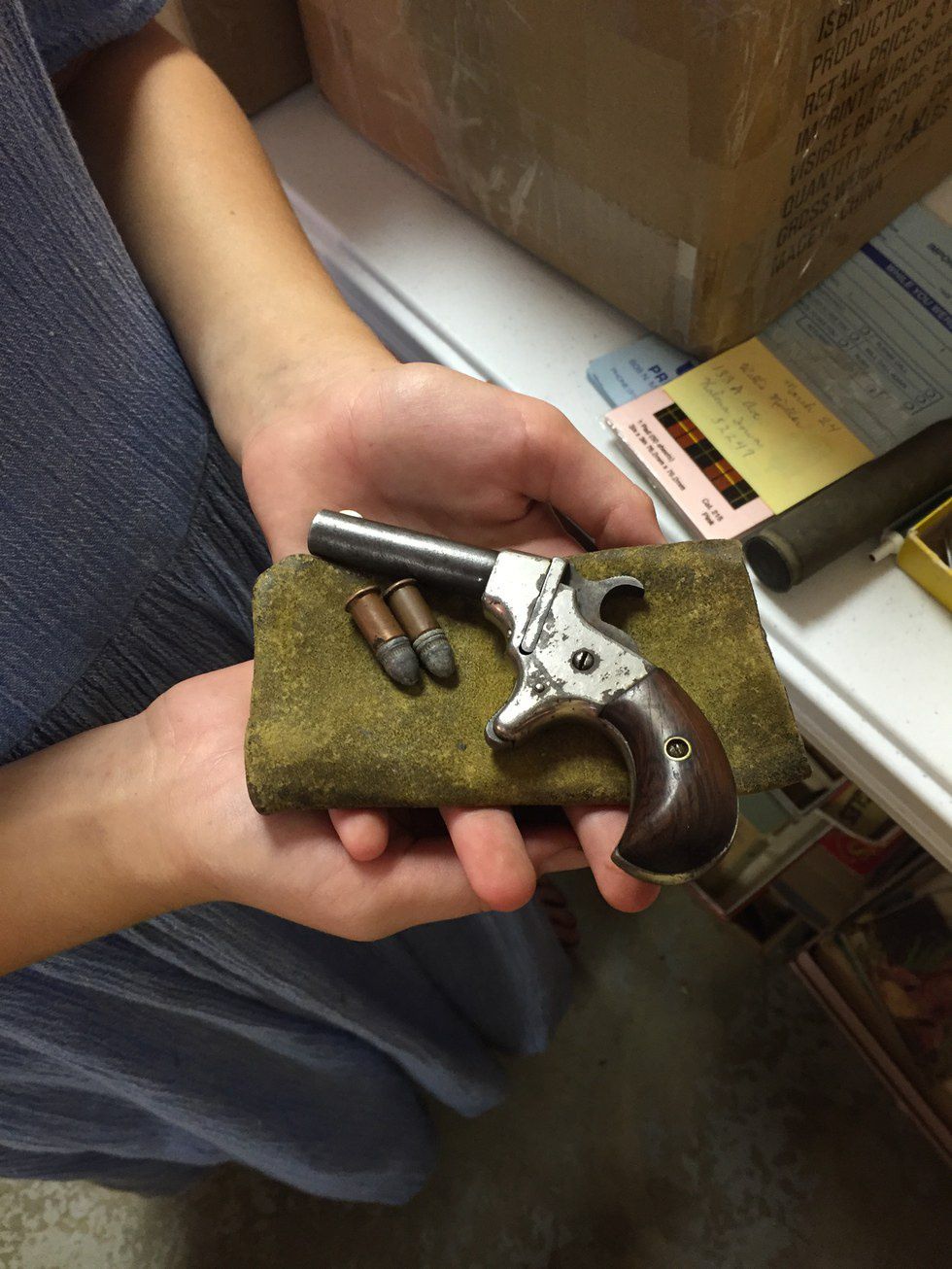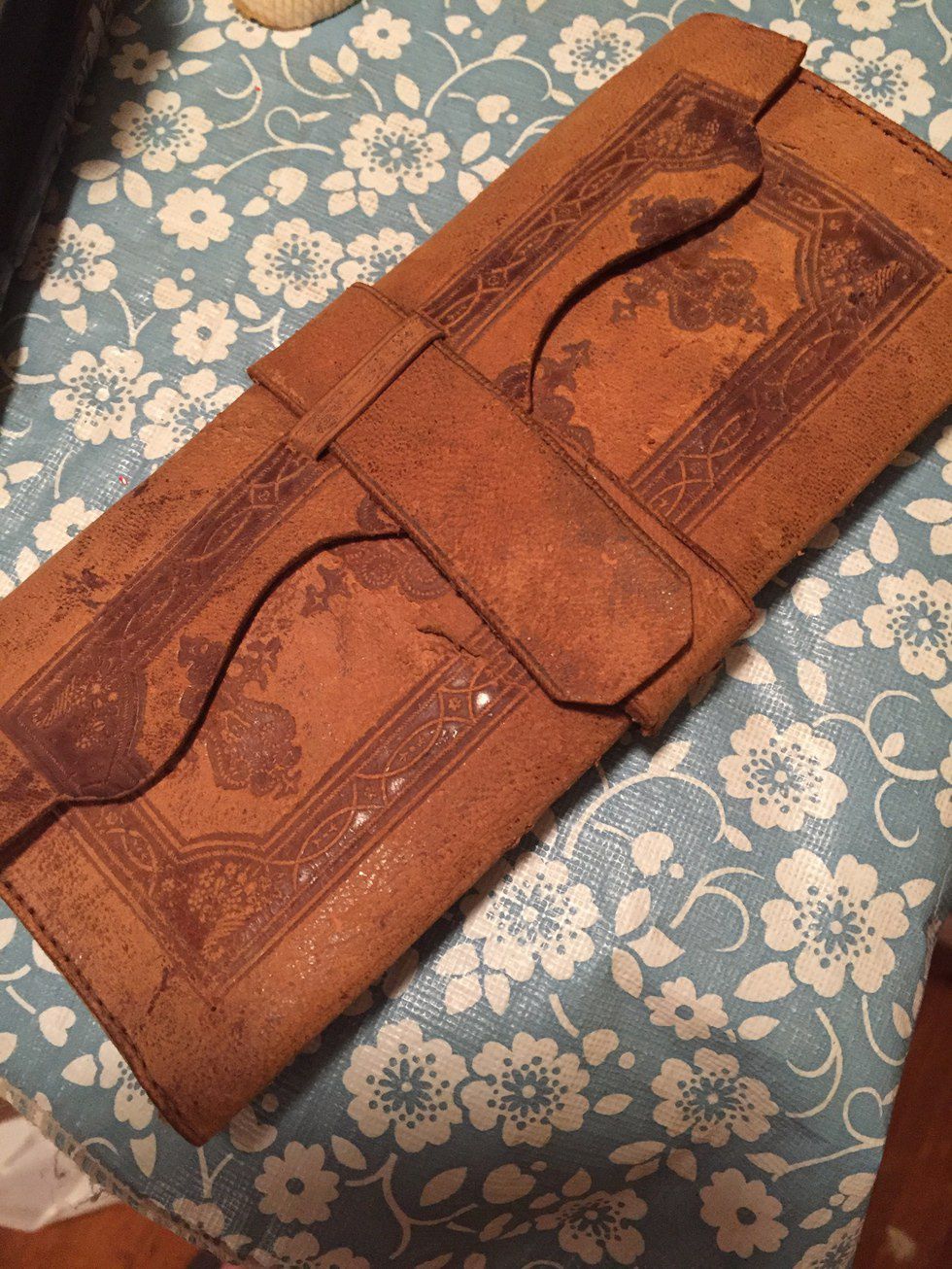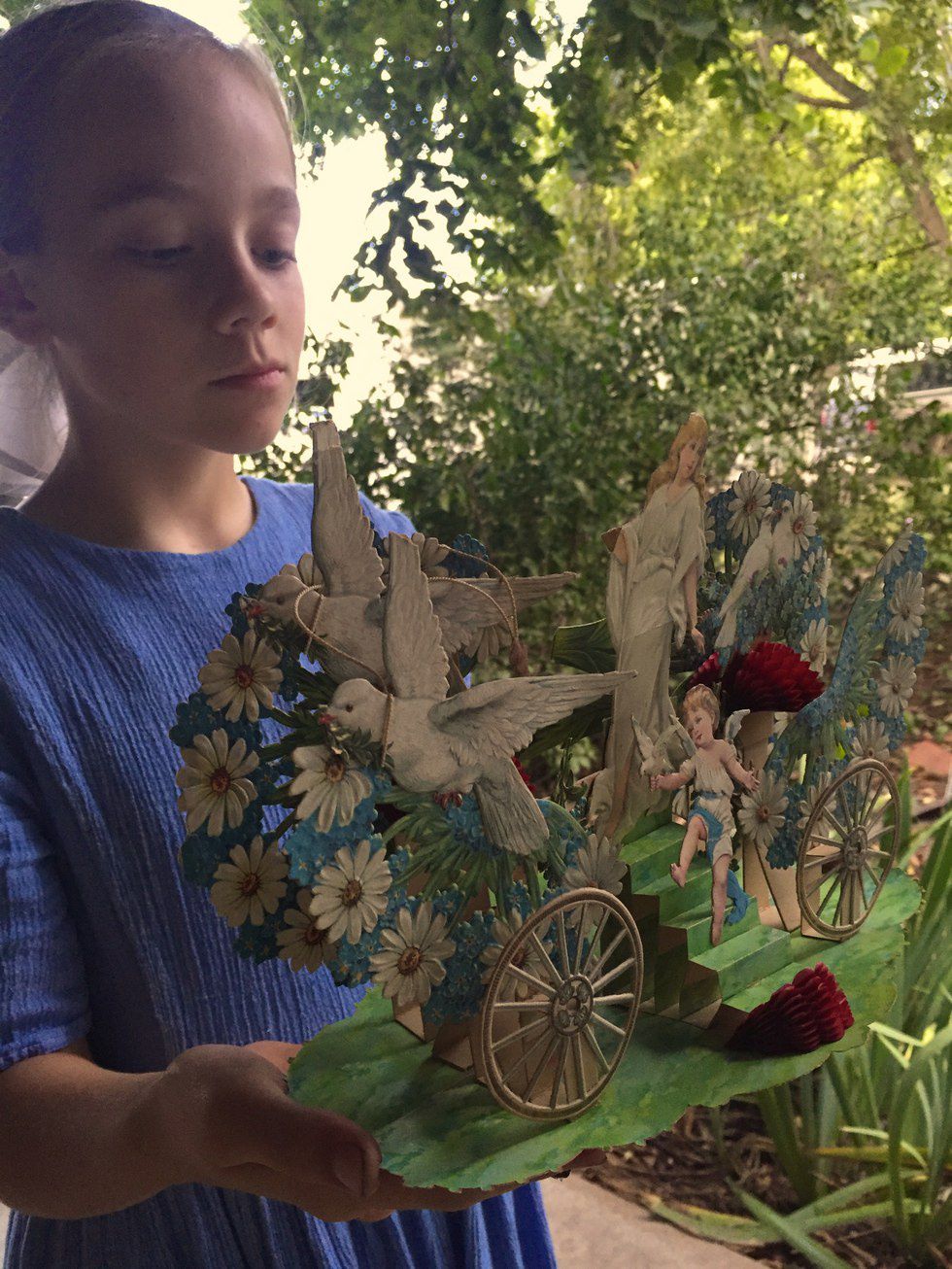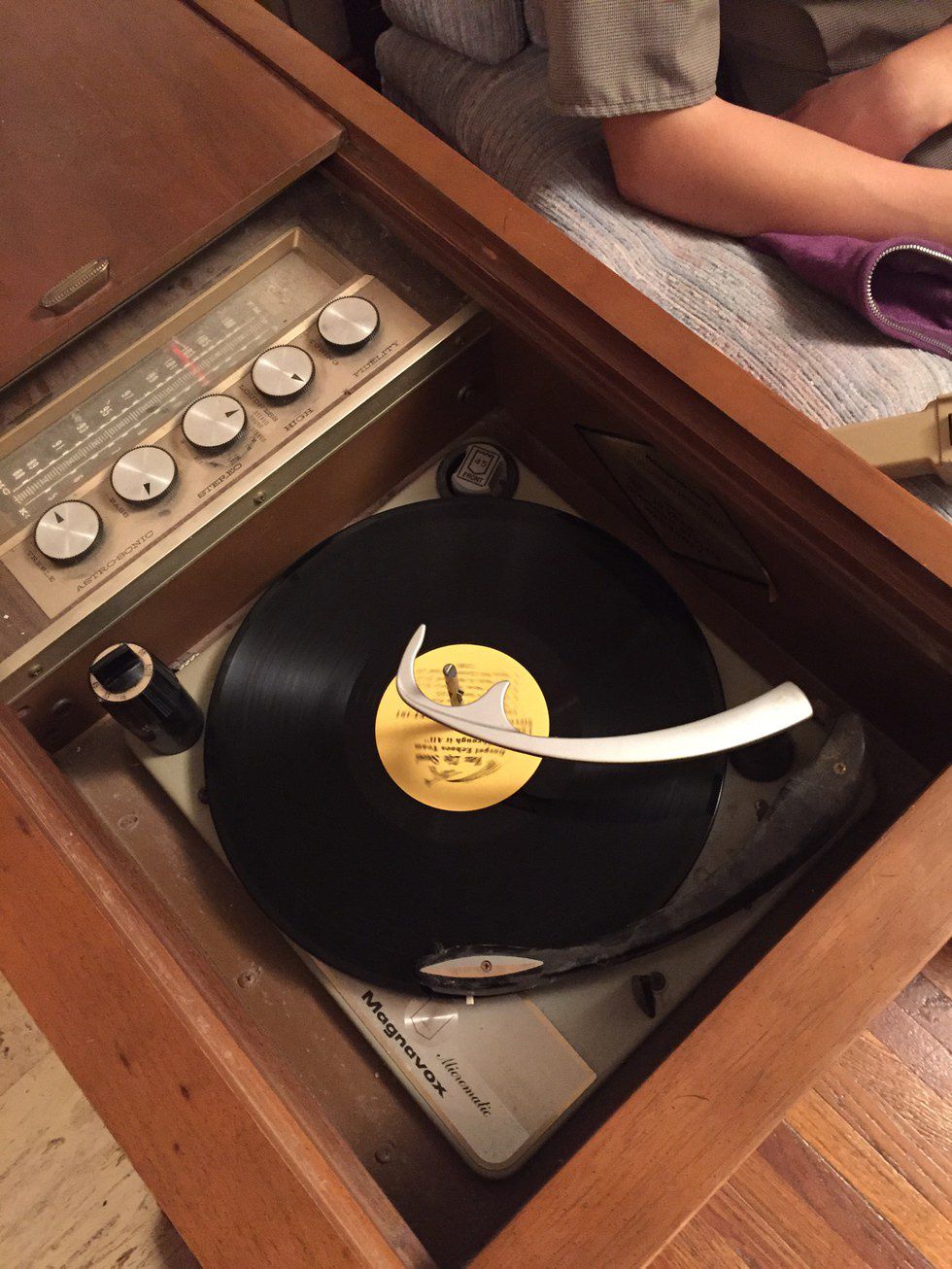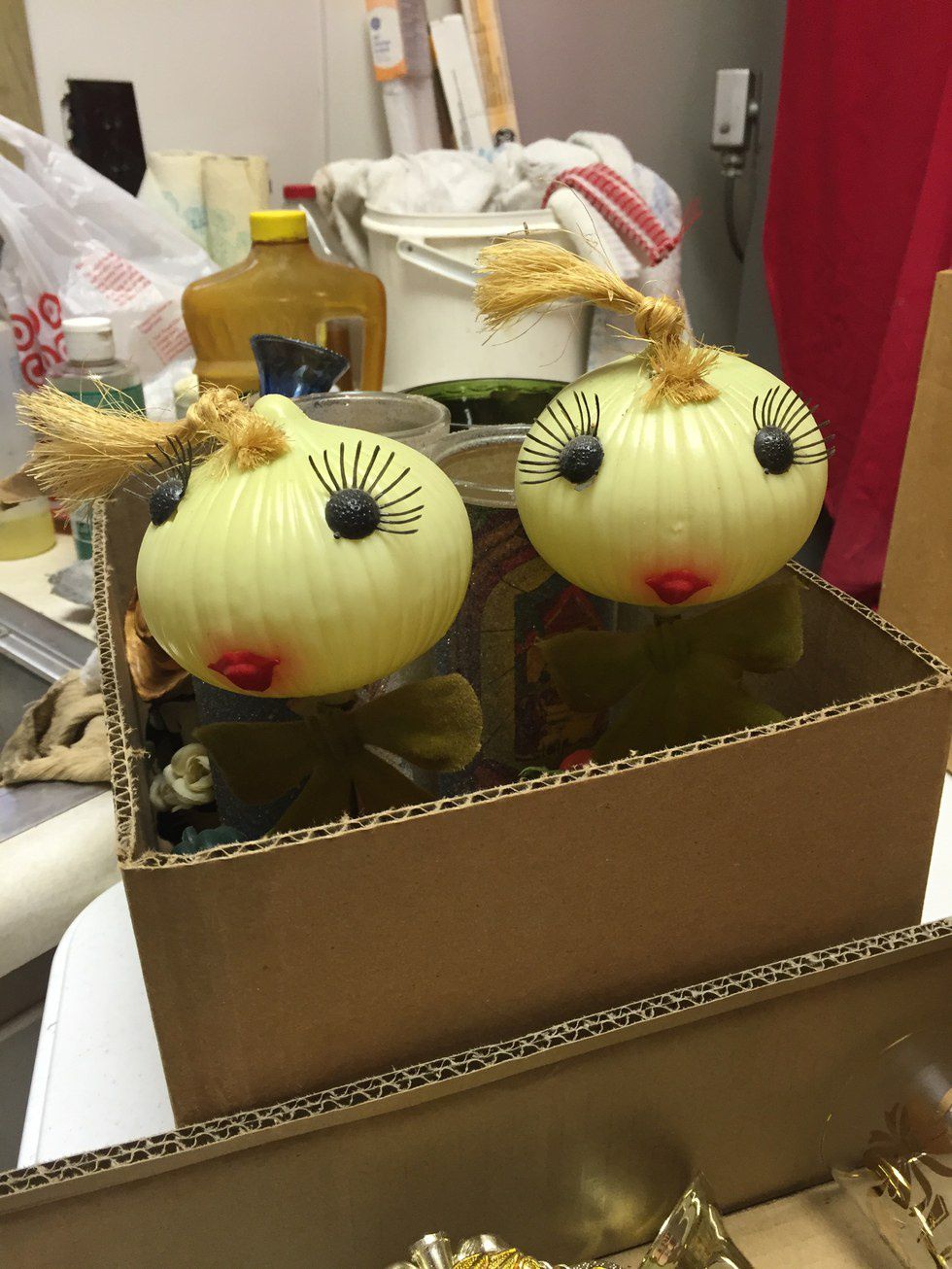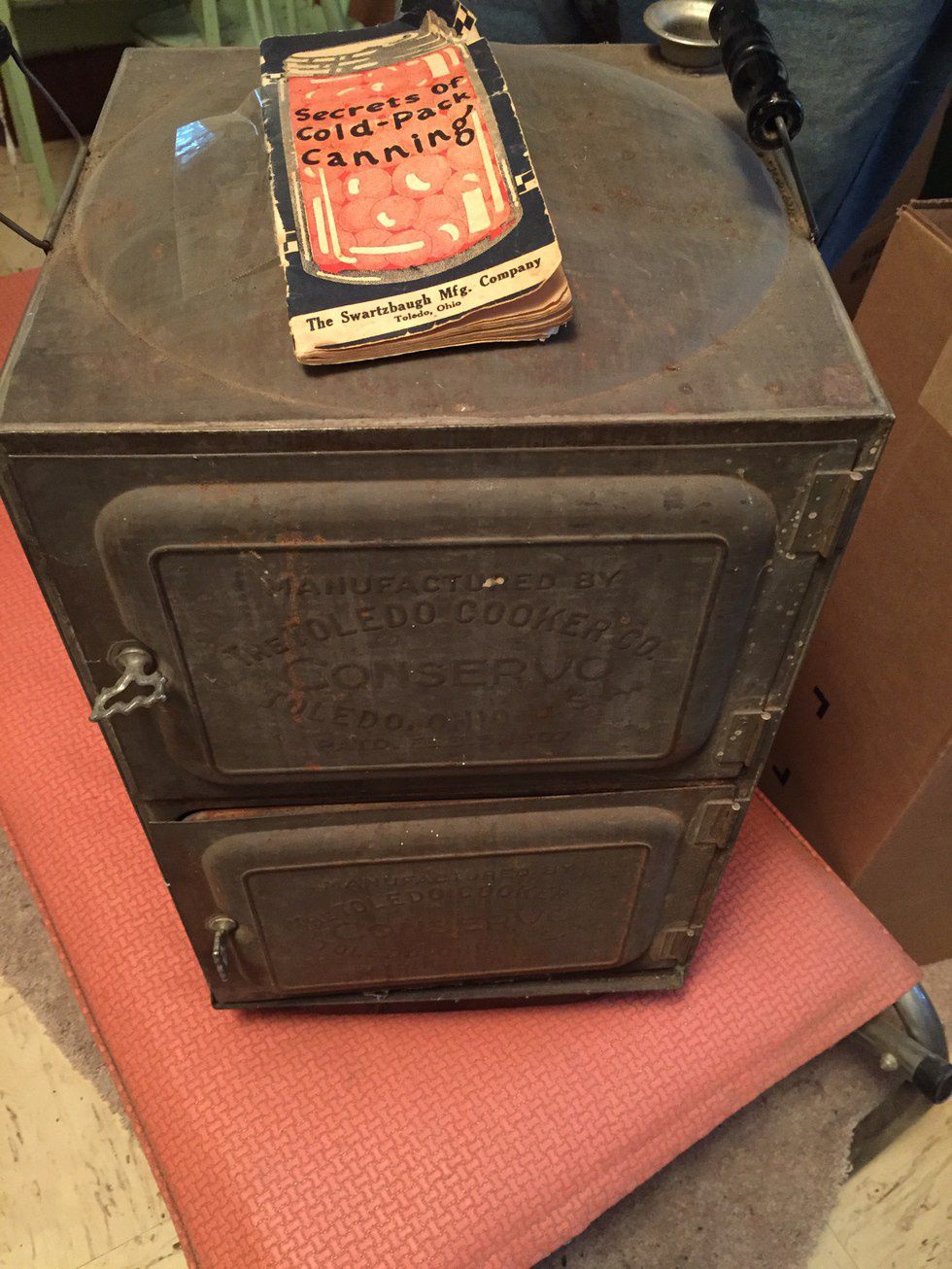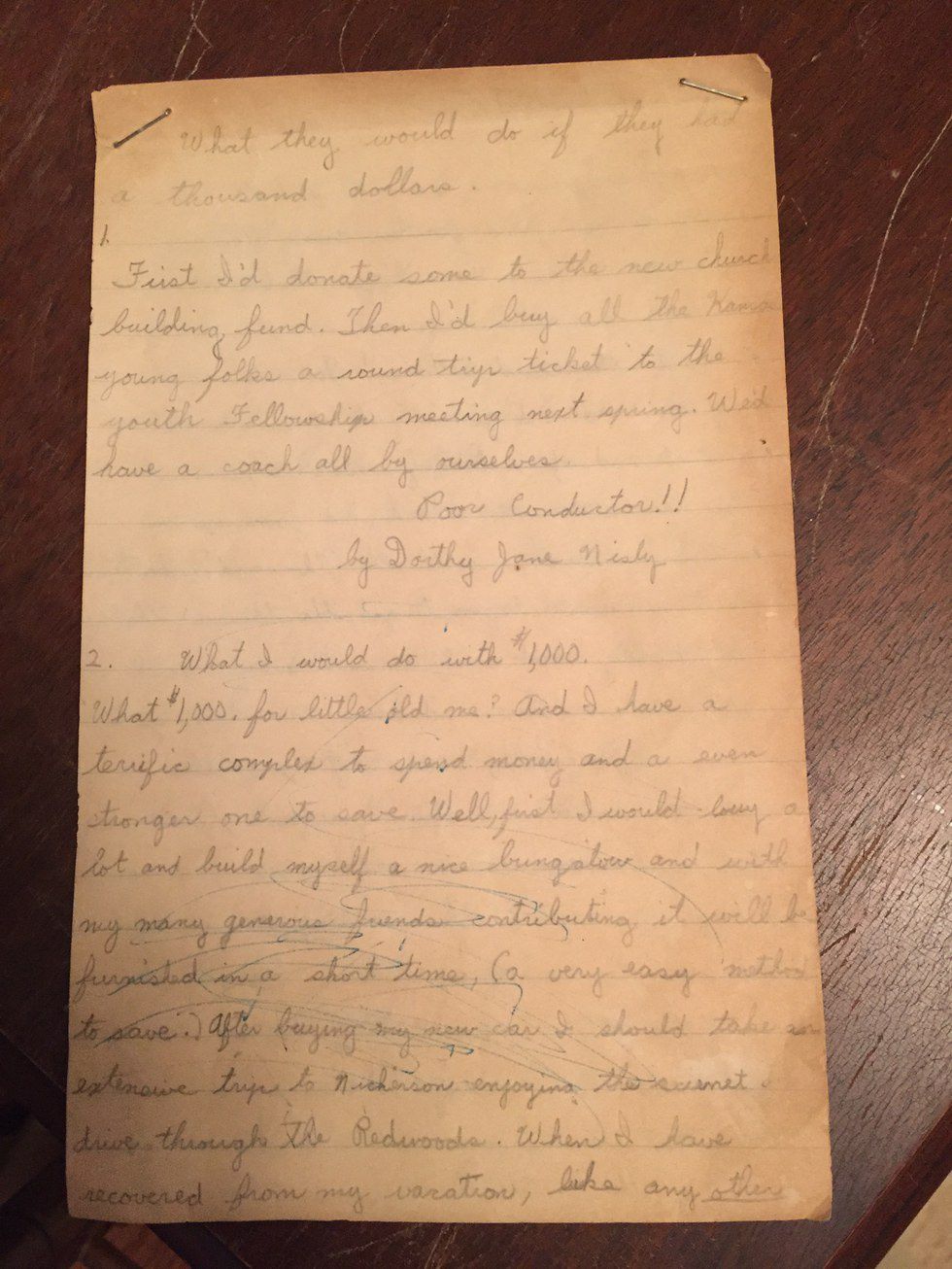“What have you found that you have never seen before?” I asked Cynthia and Emileen.
“Hmmm,” Cynthia thought for a bit, then said, “Well, we found this little glass sprayer . . .”
“Can I see it?” I asked, and followed her into the house where all the wares were displayed. She pulled out a tiny sprayer: a little glass jar screwed onto a handheld pump.
Esther Yoder, an older lady who was walking by, heard us talking. “Oh, yes,” she said, nodding. “We used that to spray the cows if the flies were bad.”
(Picture Credit: this Pinterest site)
I was touring an estate sale, which sounds like one of the least exciting things to do on a Friday night. But this was no ordinary auction: this collection of relics spanned nearly eighty-five years, since the last member of the family, Lizzie Nisly, had passed away in early August.
Dan and Amanda Nisly were married in the early 1930’s, and their marriage lasted over fifty years, until Amanda’s death in 1991. Like many in their generation, who lived through two World Wars and the Great Depression in between, they threw nothing away.
My parents moved from Washington, D. C., back to Kansas in 1991, with their six small children (I was the youngest, at nine months old.) to the farm where Dad grew up, just down the road from the Nisly sisters.
Several years after my dad had returned to farming, he started renting the land Lizzie and her sister Fannie inherited. My mom “neighbored” with Lizzie and her sister Fannie: they exchanged produce, and talked about the local news.
After Fannie died twelve years ago, Mom made sure Lizzie had what she needed; tending to her garden, taking her to appointments, and convincing her to eat regularly.
As I grew up, Lizzie and Fannie were part of our life. Mom would take my sisters and I to pick apricots from the tree that drooped over their lane, or pick strawberries from their sprawling patch.
Actually, everything on their farm was overgrown, and I didn’t think that just because I was small when I first saw it. The lilacs bloomed profusely beside the lane (before they grew too big and couldn't produce flowers anymore), a wild rose bush crept all over a rusty wire fence circling the front yard, irises grew everywhere they could push up shoots, sweet peas tumbled in masses in her garden, and petunias rioted beside the sidewalk to the house.
I always felt I stepped back in time, to a bit of old-world Europe tucked away in the middle of Kansas.
I couldn’t forget the prairie, though: beyond the tumbledown white house and barn, and all the sheds and outbuildings, the virgin prairie grew, undisturbed by the farm equipment my dad ran in the field next to it. If we stayed long enough, the moon rose, glorious in the great, glowing bowl of sky, beyond the garden.
I watched that moon rise again the night I toured the sale of Lizzie’s estate, and reflected on the living history I witnessed in turning over each item.
A 20mm, probably World War II vintage, bullet lay next to a tiny leather pouch, the glossy tan hide worn by years of use. I picked up the pouch, and pulled out a tiny pistol, the barrel shining, the faux wooden handle still smooth and polished. The bullet was longer than the pistol, and I wondered how to fire a weapon that small.
“It was probably for self-defense,” Emileen and Cynthia told me. “It probably didn’t have very good aim.”
The items were all historic, but ranged from the very silly to the very fine.
When Karen, Cynthia and Emileen (the mother and daughters of the family who inherited the contents of the house) were sorting Lizzie's things, they found a fine, hand-tooled leather wallet, the strap mended with crude black stitching. A note inside explained that Abraham C., Lizzie’s great-grandpa, had given the wallet to his son, Dan A. Nisly, Lizzie’s grandpa.
Abraham C. Nisly is still known as the venerable patriarch of the Kansas Amish community, who moved his family here in 1883 from the fertile plains of Illinois, looking to found a more spiritual church.
(An interesting historical side note: Abraham C. and his friend, Christian Bontrager, were traveling to Grand Island, Nebraska, to investigate the Amish community there. They had gotten as far as Kansas City when they discovered they couldn’t go on because the tracks were flooded on their way to Nebraska. An enterprising land agent talked them into going to Hutchinson instead, where they could buy land for $5 an acre. And that is how the Amish came to Reno County.)
As I thought about the dates, I realized the wallet could easily be a hundred and twenty-five years old.
I look at the intricate stamped pattern, and I wonder who burned that into the leather. I wonder who cut it and who stitched it. I wonder if they had a machine to sew it, or if they did it by hand.
I also wondered at the intricacy of the old valentines we found.
“They’re so delicate,” Emileen said wistfully. Then, as she and Cynthia were to repeat many times, she added, “But we just couldn’t keep everything.”
Lizzie’s family was not extravagant, to state it mildly, but there were a few items in the house that seemed oddly luxurious for a frugal Amish Mennonite family. For instance, Karen and my mom discovered no less than five record players in the house, each of which seems to represent a different decade. The oldest probably dates from the 1950’s; the newest was probably bought in the 1980’s.
We tried the cabinet record player, dropping a record onto the control arm, which dropped it onto the turntable. The needle moved over, and as my brother adjusted one of the knobs, the record wobbled out the voices of an old Mennonite group: the Gospel Echoes.
We were equally surprised by an ancient massage table, which offered a full-body vibrating experience—not just for the person who lay on it, but also for anyone standing within ten feet. The whole cot chattered on the floor.
I decided to try using the table.
And then there were tacky things, too: plastic onions with bright red lips and black spidery eyelashes. I have no idea where Lizzie and Fannie got these, or why they had them. Still, saving souls that they were, they had not been able to throw them away.
We found an old stovetop Conservo canner, with instructions on how to use it. We found tiny spoons and a fork, blackened with age. We found salt and pepper shakers of every size and description.
So many, many things: most carefully stored long past a time when Lizzie or Fannie could use them. The house became a time capsule, and now, opened after decades of being undisturbed, showed just how much our culture has changed.
Consider an old letter Karen found, titled, “What they would do if they had a thousand dollars.” Different young men and women in the youth group, probably in the late 1960’s, accepted this challenge question.
Lizzie Miller wrote, “What, $1,000 for little old me? And I have a terrific complex to spend money and a even stronger one to save. Well, first I would buy a lot and build myself a new bungalow and with my many generous friends contributing it will be furnished in a short time, (a very easy matter to save). After buying my new car I should take an extensive trip to Nickerson, enjoying the sunset drive through the Redwoods. When I have recovered from my vacation, like any other sensible person I would put the remainder in a savings fund for a rainy day.”
Lizzie Miller's word choice amuses me--English is clearly not her first language--but what amazes me is how much she thought she could do with a thousand dollars. I couldn't pay my college tuition for one semester with that, and she is dreaming of buying a houseand a car?
(By the way, I looked up what the buying power of $1000 in 1967 would be today and it was just over $7,200.)
I also smile at her 'extensive trip to Nickerson.' Clearly, twenty miles has become a commute rather than a vacation.
The crowning touch is her concluding remark: she would save whatever she had left. I'm not surprised at her frugality, but I am surprised that she thought she would have extra money!
By the end of the evening, my store of wonder was exhausted, and I realized how much I had learned, just by looking closely at the different items for sale.
Here's a new strategy for teaching or learning history: don't just read books.
You can actually find real history, living history, at estate sales, auctions, and flea markets. They remind us of what is easy to forget: we live in a time very different from our grandparents' culture.
It's fun to see how the ordinary, everyday stuff we use has changed so much--I had to laugh at the square tin canner, for instance. Yet I marveled at the lovely quilts, intricately stitched, but never used. Saved for a special time--but Lizzie never used them.
I want to learn from Lizzie, and my grandparents, and everyone who lived through the hard times they did--buying what they needed, and taking care of what they had. Yet I also want to be sure that I don't forget to enjoy the lovely things I do have.
Stuff is just stuff, without the memories of the quiet, vibrant people who used them. Like my neighbor, Lizzie.




